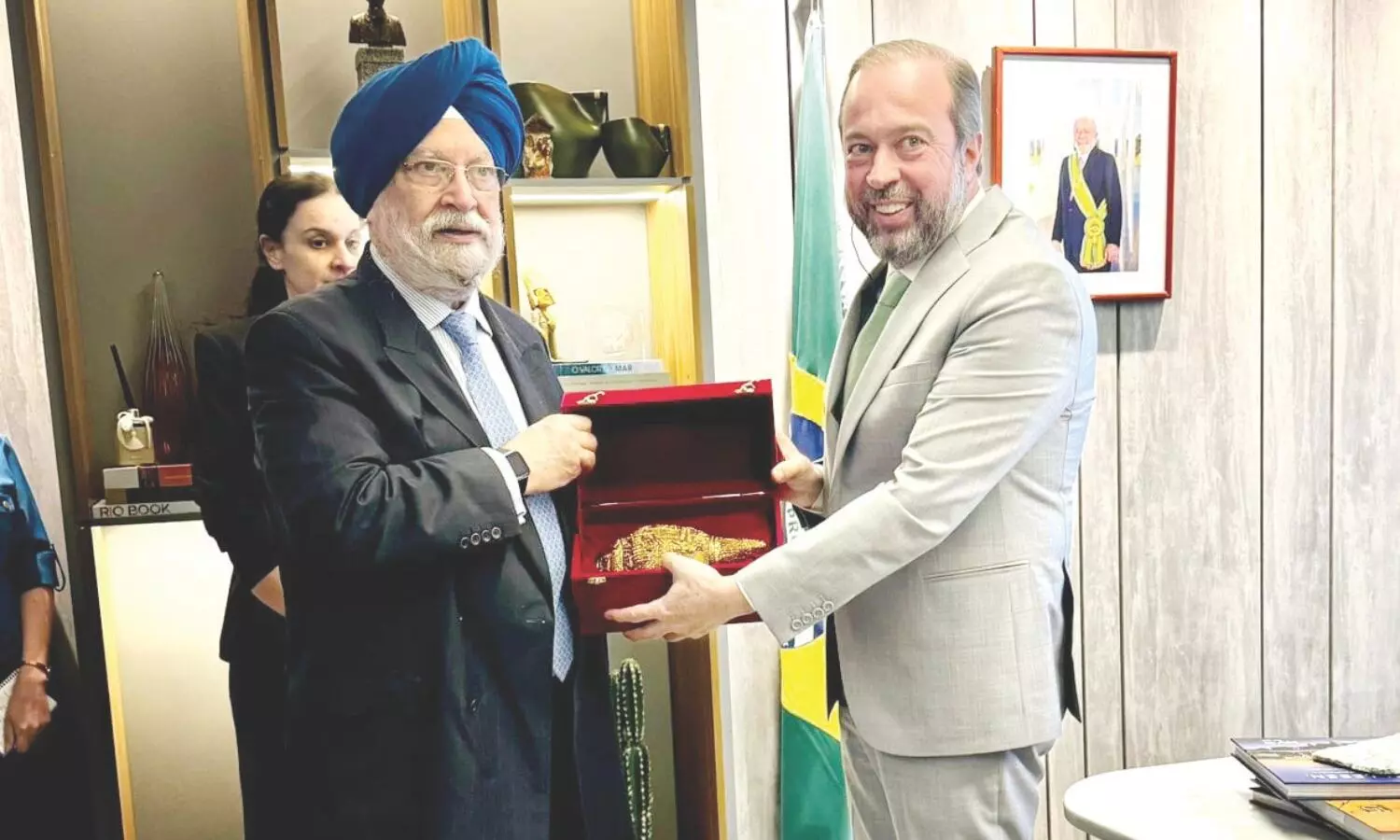India and Brazil strengthen energy ties with focus on oil, gas & biofuels

New Delhi: In a bid to deepen bilateral cooperation in the energy sector, India and Brazil reaffirmed their commitment to enhancing Indian investments in Brazil’s oil and gas industry, the Government of India confirmed on Saturday.
This was highlighted during the official visit of India’s Minister of Petroleum and Natural Gas, Hardeep Singh Puri, to Brazil from September 19 to 21, where he was hosted by Brazil’s Minister of Mines and Energy, Alexandre Silveira.
Accompanied by representatives from Indian oil and gas companies, Puri’s visit focused on strengthening ties across both upstream and downstream sectors. The discussions aimed at expanding the presence of Indian companies in Brazil through new investment opportunities in producing assets, cementing Brazil’s status as one of the largest global destinations for Indian energy investments.
Both sides also explored innovative mechanisms to enhance bilateral trade in the energy sector. As founding members of the Global Biofuels Alliance, India and Brazil reiterated the pivotal role of biofuels in the global energy transition, emphasizing their potential to drive environmental sustainability and foster socioeconomic growth. India commended Brazil for its leadership role as the G20 host, particularly for its focus on sustainable fuels and the energy transition.
During the visit, the two countries also agreed to co-host the India-Brazil Clean Cooking Ministerial Meeting during India Energy Week 2025. The event will provide a platform to explore global solutions for clean cooking, aiming to improve access to clean energy.
Discussions further touched on deep and ultra-deep offshore explorations in Indian waters, as well as potential collaboration in critical minerals and their value chains. Recognizing their shared status as major biofuel producers, India and Brazil discussed the prospects of collaboration in the development and production of Sustainable Aviation Fuels (SAF). Despite SAF currently accounting for only 0.3 per cent of aviation fuel use, it remains a key component in decarbonizing the aviation sector. However, both nations acknowledged the significant challenges to large-scale SAF production, including feedstock availability, high costs, and the need for infrastructure improvements. They also emphasized the importance of setting consistent international standards and maintaining technological neutrality in SAF development.
India and Brazil underscored the strategic importance of their partnership in advancing the SAF sector. Plans include collaborating on ethanol production, sharing technology, and conducting joint research to optimize SAF production. They also intend to exchange regulatory experiences, encourage investment, and promote SAF development in multilateral forums, including the International Civil Aviation Organization (ICAO).
This collaboration aligns with both countries’ sustainable development and carbon reduction goals. By pooling resources and expertise, India and Brazil aim to lead the global transition to lower-emission aviation, tackling environmental challenges while fostering economic and technological growth in the biofuels sector. The partnership is expected to create jobs, particularly in rural areas, reduce reliance on energy imports, and contribute to global efforts to lower the carbon footprint of aviation.
Puri and Silveira emphasized that this strengthened partnership marks a significant milestone in India-Brazil relations, positioning the two nations as key players in the global drive towards a cleaner aviation future.



